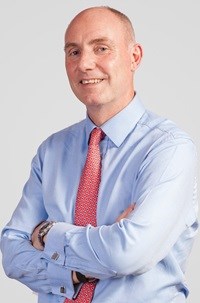John Tadman, country manager for Avanade South Africa, believes the acquisition to be a step in the right direction; one that leads to a digital ecosystem which embraces the hyper-connected workforce and embraces business collaboration. He shared some of his thoughts on the matter with Bizcommunity.

Microsoft and LinkedIn would be best-positioned to comment on that. What I can say is that this marriage of Microsoft and LinkedIn makes a lot of sense in our increasingly hyper-connected world. Businesses need to move away from 'walled gardens', with closed platforms that prevent collaboration with outside parties, customers or even competitors. The deal shows that it’s truly time to go borderless.
This acquisition combines the world’s largest business social network and the world’s largest technology provider together. By joining forces with LinkedIn, there is an opportunity for Microsoft to architect a truly digital ecosystem that brings together access to data and context to make interactions truly personal, available and impactful. The acquisition also demonstrates how digital workplace technologies can drive greater productivity, innovation and customer engagement – whether it’s adding context to a CRM system to make a customer interaction more personal, or surfacing an insight through Delve and Office 365 to empower an employee to make a more informed business decision.
Many South African organisations are primarily focused on digital to drive customer engagement, but in order to be digital on the outside, organisations need to be digital on the inside. That’s why it’s critical they embrace a digital workplace, to attract the best digital talent and enable them to meet the needs of the digital customer. Microsoft’s acquisition of LinkedIn is an example of how digital workplace technologies are creating richer, more relevant connections among people, data and things.
Digital ecosystems and borderless platforms create opportunities for businesses to take advantage of a 'mesh of interactions' that connect people, things, algorithms and entities. This digital mesh generates more value than the sum of its parts, advancing entire industries and ecosystems, not just individual organisations. Microsoft’s acquisition of LinkedIn acquisition is a validation of this shift.

The more data we have, the more thoughtful we must be about the ways in which it is used. Digital ethics is not mandated by law, so it is largely up to each individual organisation to set its own innovation parameters and define how its customer and employee data will be used.
A more humanist approach is typically needed for digital ethics than other governance frameworks. There is no one-size-fits-all approach, so the key for South African organisations is to assess the ethical implications of data usage from the perspective of their customers. Each organisation must consider its own customers and what they would find to be an acceptable use of data and technology to deliver products and services. These expectations will differ from industry-to-industry, region-to-region, and country-to-country. Ultimately, digital ethics sits at the nexus of what is legally required, what can be made possible by digital technology, and what is morally desirable.
Microsoft’s acquisition of LinkedIn is a powerful demonstration of the possibility of the liquid workforce – where people, processes and organisations will now become even more interconnected through cloud and digital technologies. As we move to a more knowledge-based economy, this will be crucial to our future workforce – the way we work and who works with us.
Connecting the many sources of information from Microsoft’s intelligent cloud to the treasure trove of data and networks from LinkedIn will open the door to insights and value that haven’t previously been possible. Avanade looks forward to helping our clients realise results in this new digital workplace.
